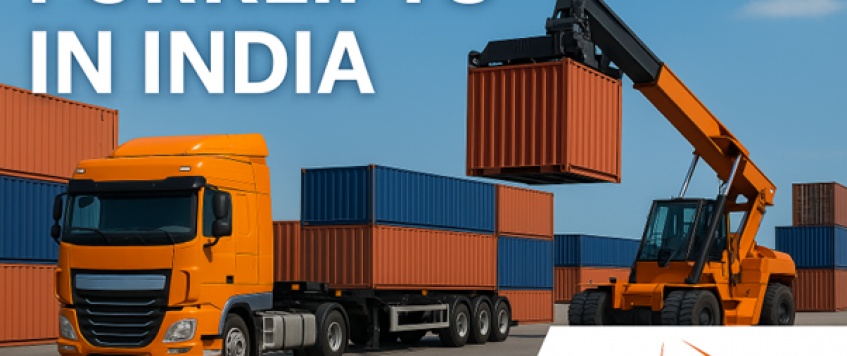-
01
Nov
Forklifts in India – Powering Efficient Cargo Handling
Forklifts play a vital role in India’s logistics and warehousing industry, ensuring smooth and efficient handling of cargo. With the rapid growth of e-commerce, manufacturing, and international trade, forklifts have become essential equipment for moving heavy loads, stacking goods, and supporting seamless supply chain operations. At APT Logistics, we recognize the importance of forklifts in enhancing productivity and safety across ports, warehouses, and distribution centers.
Role of Forklifts in Logistics
Forklifts are indispensable for:
- Loading & Unloading Cargo – Moving goods quickly from trucks, ships, or containers.
- Warehouse Management – Efficient stacking and retrieval of goods in storage facilities.
- Container Handling – Specialized forklifts handle heavy cargo units at ports and ICDs.
- Industrial Support – Widely used in factories and construction sites to transport raw materials.
Types of Forklifts in Use in India
- Counterbalance Forklifts – The most common type, ideal for general lifting and moving.
- Reach Trucks – Designed for high-rack storage in warehouses.
- Rough Terrain Forklifts – Built for outdoor use in uneven environments like construction sites.
- Container Handlers & Reach Stackers – Specialized for port and ICD operations.
- Electric Forklifts – Eco-friendly and efficient for indoor logistics.
APT Logistics and Forklift Solutions
At APT Logistics, forklifts are integral to our operations:
- Deployed at major Indian ports and ICDs for fast cargo handling.
- Used in our warehouses for safe stacking and storage.
- Operated by trained professionals to ensure safety and compliance.
- Available for customized client needs, from handling project cargo to regular shipments.
Why Forklifts Are Crucial in India’s Supply Chain
- Speed & Efficiency – Reduce manual labor and time in cargo handling.
- Safety – Minimize risks in moving heavy or oversized loads.
- Cost-Effective – Improve productivity and reduce operational costs.
- Scalability – Handle growing cargo volumes at ports, airports, and warehouses.
Need Help? Chat with us!
Start a Conversation
Hi! Click one of our members below to chat on WhatsApp



